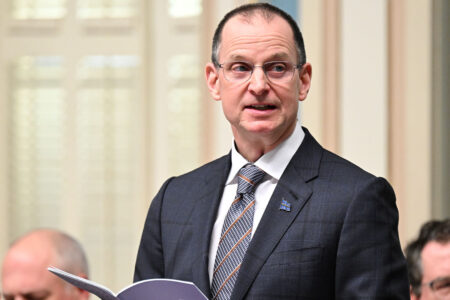
Mélanie Joly, Minister of Tourism, Official Languages and La Francophonie, marked the 50th anniversary of the first Official Languages Act in March by launching a series of consultations that are meant to lead to a thorough modernization of the Act — something that hasn’t happened since 1988.
In fact, there has been quite a lot of activity on this issue in the past year. In addition to parliamentary committees and the Commissioner of Official Languages undertaking studies and consultations on this issue, our organization, the Fédération des communautés francophones et acadienne du Canada (FCFA), has spearheaded a significant national endeavour by Canada’s francophone and Acadian minority communities to define what a modernized Official Languages Act should look like.
Why, after five decades of official languages, is a modernization of the Act overdue? There are several reasons.
First and foremost, despite notable achievements — namely, the incredible popularity of French-language immersion education — the history of the Official Languages Act has been marred by missed opportunities, half-hearted efforts at implementation and instances of federal institutions barely meeting the minimal requirements. The root cause, in most cases, is a series of structural flaws in the Act itself. No single federal institution has the responsibility, or the authority, to see to it that the Act is properly implemented throughout the government. Complaints to the commissioner of official languages often take years to process, and the commissioner’s recommendations to offending federal institutions too often go unheeded.
This lack of seriousness in the implementation of the Official Languages Act and the resulting stagnation have lowered the bar to the point where efforts to truly assert the equality of French and English in Canada are increasingly met, these days, with resistance from a small but vocal constituency.
It is not an overstatement to say that Canada is marking the 50th anniversary of the original Official Languages Act amid a full-blown language crisis. Recent events in New Brunswick, where a party that wants to abolish the province’s commissioner of official languages position and roll back duality in health and education elected three MLAs, speak volumes to that state of affairs. So does, in a way, the Ontario government’s decision to cancel the Franco-Ontarian university project and eliminate the position of commissioner of French-language services. And one need only read the comments sections of Canada’s mainstream media to see calls — often phrased in less than polite terms — to roll back bilingualism and language rights.
These events — and the increased questioning of the legitimacy of French and linguistic duality — should be of concern to all Canadians. After all, there are no greater Canadian values and lesser Canadian values. There are no greater rights and lesser rights. Challenging one of them opens the door to challenging all of them.
Our national commitment to our two official languages must be strongly and unequivocally reasserted by the federal government. A bold and sweeping modernization of the Official Languages Act goes a long way toward that goal.
In early March, the FCFA presented parliamentarians with a draft bill illustrating what an Official Languages Act designed for the Canada of 2020 and 2030 should look like. Chiefly, this bill proposes to:
- entrust the Treasury Board Secretariat with the job of coordinating the implementation of the Act, as well as the power to issue guidelines and demand results from all federal institutions in this regard;
- establish an Official Language Minority Communities Advisory Council, to enable these communities to participate in the implementation of the Act;
- create an Official Languages Tribunal, with the power to adjudicate alleged language rights violations and issue binding orders;
- include enforceable language clauses in federal-provincial-territorial fund transfer agreements;
- require Supreme Court of Canada justices to have the ability to understand both official languages; and
- enshrine the Court Challenges Program into law.
These changes are not extreme. They represent what a quasi-constitutional law such as the Official Languages Act should look like in order to be taken seriously.
When the Official Languages Act was last modernized, three decades ago, Ray Hnatyshyn, then Minister of Justice, declared in the House of Commons: “Canada is a country with both French and English solidly embedded in its history. Canada is going to develop as the progressive nation of which it is totally capable, and we look forward to this legislation taking us into the next century.”
This year, as we mark 50 years of official bilingualism in Canada and as we move toward the next federal election, committing to a renewed Official Languages Act designed to ensure its full implementation would send a strong message on what sort of country we want to be — one where respect for laws, and for the various components of Canada’s social mosaic, matters.
Photo: Tourism, Official Languages and La Francophonie Minister Mélanie Joly speaks during an event in Ottawa on March 11, 2019. Joly announced a review to modernize the Official Languages Act. THE CANADIAN PRESS/Adrian Wyld
Do you have something to say about the article you just read? Be part of the Policy Options discussion, and send in your own submission. Here is a link on how to do it. | Souhaitez-vous réagir à cet article ? Joignez-vous aux débats d’Options politiques et soumettez-nous votre texte en suivant ces directives.






